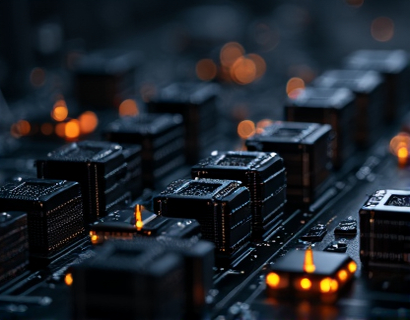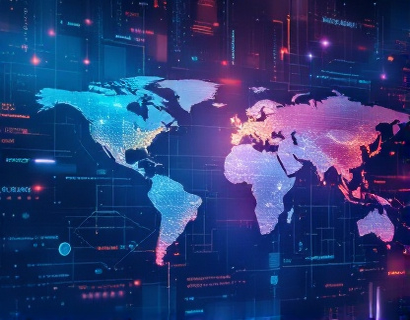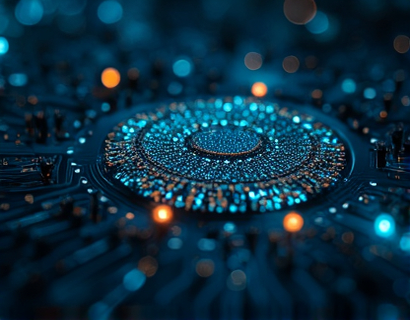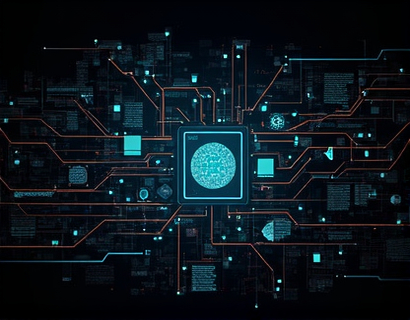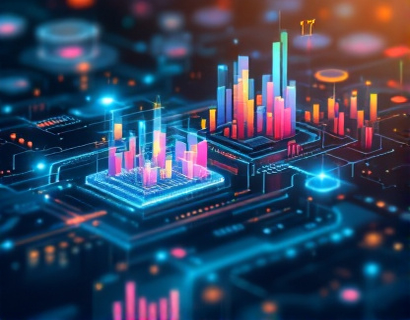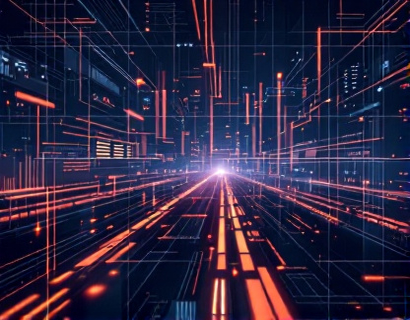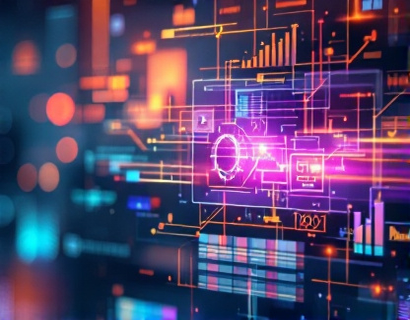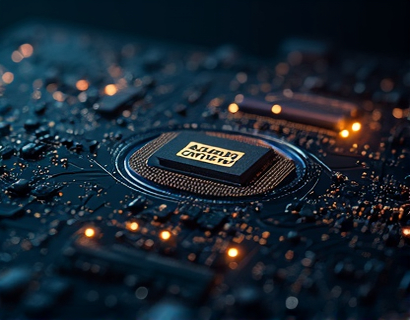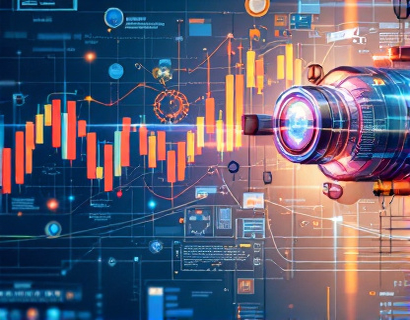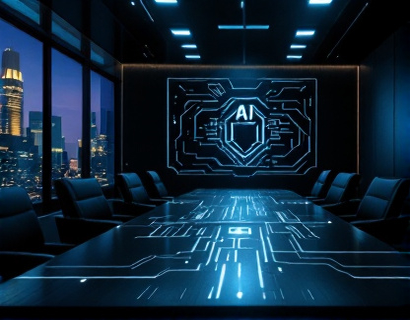Exploring the Synergy of Crypto and AI: Pioneering Digital Transformation
The intersection of cryptocurrency and artificial intelligence (AI) is giving birth to a new era of digital transformation. This convergence is not just a technological curiosity but a powerful force reshaping how we interact with digital solutions. As we delve into this topic, it's essential to understand the fundamental roles that both crypto and AI play individually and how their union is driving innovation.
Understanding Cryptocurrency
Cryptocurrency, often referred to as digital or virtual currency, uses cryptography for security and operates on a decentralized network, typically a blockchain. This decentralized nature eliminates the need for intermediaries such as banks, making transactions faster, cheaper, and more secure. The most well-known cryptocurrency, Bitcoin, was launched in 2009 by an unknown entity using the pseudonym Satoshi Nakamoto. Since then, thousands of alternative cryptocurrencies, or altcoins, have emerged, each with unique features and use cases.
The Role of Artificial Intelligence
Artificial intelligence, on the other hand, encompasses a broad range of technologies designed to simulate human intelligence processes. These include learning (the acquisition of information and rules for using it), reasoning (using rules to reach approximate or definite conclusions), and self-correction. AI applications are vast, from natural language processing and machine learning to robotics and predictive analytics. In the context of digital transformation, AI is pivotal in automating processes, enhancing decision-making, and creating intelligent systems that can adapt and learn from data.
Merging Crypto and AI: A New Paradigm
The fusion of cryptocurrency and AI is creating advanced applications that redefine digital experiences. One of the most significant advantages of this synergy is the enhancement of security and privacy. Blockchain's inherent security features combined with AI's ability to detect and prevent fraudulent activities result in robust systems that protect user data and assets. This is particularly crucial in an era where data breaches and cyber threats are increasingly common.
Moreover, AI can optimize blockchain networks, making them more efficient and scalable. Machine learning algorithms can manage and analyze vast amounts of data, improving transaction processing speeds and reducing energy consumption. For instance, AI-driven consensus mechanisms can dynamically adjust parameters to balance network load and security, ensuring smooth operations even during peak times.
Enhancing User Experiences
The integration of AI in cryptocurrency applications significantly enhances user experiences. Smart contracts, self-executing contracts with the terms directly written into code, can be powered by AI to make decisions based on real-time data. This not only automates processes but also ensures that contracts are executed precisely as intended, reducing the risk of human error or manipulation.
Personalization is another area where AI shines. By analyzing user behavior and preferences, AI can tailor cryptocurrency services to individual needs. For example, a crypto trading platform could use AI to provide personalized investment recommendations based on a user's trading history and market trends. This level of customization not only improves user satisfaction but also increases engagement and loyalty.
Innovative Applications
The combination of crypto and AI is giving rise to innovative applications across various sectors. In finance, decentralized finance (DeFi) platforms leverage AI to offer sophisticated financial services such as lending, borrowing, and yield farming, all without traditional financial intermediaries. These platforms use AI to assess creditworthiness, manage risks, and optimize returns, making financial services more accessible and efficient.
In the realm of supply chain management, AI-powered blockchain solutions can track products from origin to destination, ensuring transparency and traceability. This is particularly valuable in industries like pharmaceuticals and food, where the integrity of the supply chain is critical. AI can predict and prevent bottlenecks, optimize inventory levels, and ensure compliance with regulatory standards.
Healthcare is another sector benefiting from this synergy. AI-driven blockchain applications can secure and manage patient data, ensuring privacy and compliance with regulations like GDPR. Smart contracts can automate insurance claims and drug distribution, streamlining processes and reducing costs. AI can also analyze medical data to identify patterns and predict outcomes, aiding in diagnosis and treatment planning.
Challenges and Considerations
Despite the numerous benefits, the integration of crypto and AI is not without challenges. One of the primary concerns is regulatory uncertainty. As both crypto and AI are relatively new fields, regulatory frameworks are still evolving. This can create legal ambiguities and risks for businesses and developers. It's crucial for stakeholders to stay informed about regulatory developments and ensure compliance to avoid potential pitfalls.
Another challenge is the technical complexity involved in merging these technologies. Developing robust systems that seamlessly integrate blockchain and AI requires expertise in both domains. This can be a barrier for smaller organizations or individuals looking to adopt these technologies. Collaboration and knowledge sharing within the community can help overcome these hurdles.
Scalability is also a significant consideration. While blockchain and AI offer powerful solutions, scaling these systems to handle large volumes of data and transactions remains a challenge. Research and development in areas like sharding for blockchain and more efficient AI algorithms are essential to address these issues.
Future Prospects
The future of crypto and AI is bright, with numerous opportunities for growth and innovation. As technology advances, we can expect more sophisticated applications that further blur the lines between these fields. For instance, the development of decentralized AI (DAI) platforms could allow AI models to be trained and deployed on a blockchain, ensuring transparency and security in AI operations.
Moreover, the rise of Web 3.0, a decentralized internet powered by blockchain, will heavily rely on AI to create intelligent, user-centric experiences. This new web will empower users with greater control over their data and online interactions, fostering a more inclusive and equitable digital landscape.
In conclusion, the convergence of cryptocurrency and AI is not just a technological trend but a transformative force reshaping the digital world. By leveraging the strengths of both domains, we can create advanced solutions that enhance security, efficiency, and user experiences. As we continue to explore this exciting frontier, the potential for innovation and positive impact is immense.







